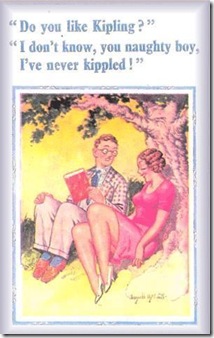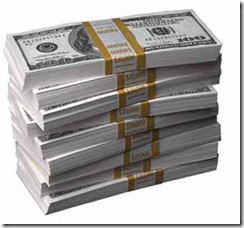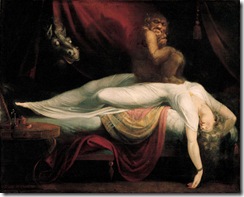
No college freshman in America is able to escape his courses without encountering Kant’s Categorical Imperative in some form or other. Drawing on a Medieval moral tradition that held that God has placed in each man’s heart, whether Catholic, pagan, or apostate, the knowledge of right and wrong, Kant held that each person has an inherent rational knowledge of the Moral Law, or the pure form of moral action, which is commonly known as the Golden Rule. Behind the Golden Rule is, furthermore, an impulse to act according to the Moral Law which Kant dubbed the Categorical Imperative — a concept which Freud later took up and reinterpreted as an irrational force: the Super Ego.
For Kant, however, the Categorical Imperative was always a rational impulse which revealed our transcendent selves. How, then, to explain the not infrequent impulse to not fulfill one’s duty to the Moral law? According to Kant:
"We are not, then, to call the depravity of human nature wickedness taking the word in its strict sense as a disposition (the subjective principle of the maxims) to adopt evil as evil into our maxim as our incentives (for that is diabolical); we should rather term it the perversity of the heart, which, then, because of what follows from it, is also called an evil heart. Such a heart may coexist with a will which in general is good: it arises from the frailty of human nature, the lack of sufficient strength to follow out the principles it has chosen for itself…" — Religion Within the Limits of Reason Alone
Edgar Allan Poe made a point of exploring that which Kant would rather leave aside as pointless and empty of content. In an 1850 short story, he wrote:
"Induction, a posteriori, would have brought phrenology to admit, as an innate and primitive principle of human action, a paradoxical something, which we may call perverseness, for want of a more characteristic term. In the sense I intend, it is, in fact, a mobile without motive, a motive not motivirt. Through its promptings we act without comprehensible object; or, if this shall be understood as a contradiction in terms, we may so far modify the proposition as to say, that through its promptings we act, for the reason that we should not.
…
"There lives no man who at some period has not been tormented, for example, by an earnest desire to tantalize a listener by circumlocution. The speaker is aware that he displeases; he has every intention to please, he is usually curt, precise, and clear, the most laconic and luminous language is struggling for utterance upon his tongue, it is only with difficulty that he restrains himself from giving it flow; he dreads and deprecates the anger of him whom he addresses; yet, the thought strikes him, that by certain involutions and parentheses this anger may be engendered. That single thought is enough. The impulse increases to a wish, the wish to a desire, the desire to an uncontrollable longing, and the longing (to the deep regret and mortification of the speaker, and in defiance of all consequences) is indulged.
…
"We have a task before us which must be speedily performed. We know that it will be ruinous to make delay… We glow, we are consumed with eagerness to commence the work, with the anticipation of whose glorious result our whole souls are on fire. It must, it shall be undertaken to-day, and yet we put it off until to-morrow, and why? There is no answer, except that we feel perverse, using the word with no comprehension of the principle." — The Imp of the Perverse
The tendency which Poe calls perversity — the tendency to say the wrong thing, to zig when one should zag, to procrastinate merely to see what will happen next — seems to be more ubiquitous in software programming than in other occupations. I’ve known programmers who not only say things they shouldn’t, but seem to take a particular joy in doing so. They do not simply lack an internal censor that would keep them from saying certain things, but seem to actually be possessed by some sort of Socratic daimon who eggs them on.
Yet sometimes I think it is not the programmers who are especially possessed of this imp, but simply they who are not able to mask it behind other, more acceptable, modes of behavior. We often hear of the disgruntled chef who spits in a difficult customer’s food, or the unhygienic bartender who slips unsanitary items in a customer’s drink. The same impulse, I think, takes over middle-managers at times. They, who are forced to do unpleasant tasks by their direct managers, and who in the end are blamed by both the people under them as well as those over them when things go wrong, are always suspected of taking a particular pleasure — dare I say a perverse pleasure — when unpleasant things, such as dressing down an employee or on occasion firing one, must be done. What is more perverse, after all, than actually taking pleasure in performing unpleasant tasks, and who could blame them if they did?
Similar to Poe’s "mobile without motive," Robert Herrick captured the mood as one of Delight in Disorder (1648):
A SWEET disorder in the dress
Kindles in clothes a wantonness :
A lawn about the shoulders thrown
Into a fine distraction :
An erring lace which here and there
Enthrals the crimson stomacher :
A cuff neglectful, and thereby
Ribbons to flow confusedly :
A winning wave (deserving note)
In the tempestuous petticoat :
A careless shoe-string, in whose tie
I see a wild civility :
Do more bewitch me than when art
Is too precise in every part.
The sexual element that is implicit in Herrick’s understanding of the imp of perversity is remarkably absent from Poe’s, just as the element of danger, pervasive in Poe, is absent in Herrick. Our contemporary notion of the perverse tends to span both elements, and is generally accessorized with leather where Herrick has petticoats, and piercings where Poe envisions only murder. Yet even in our own times perversity has started to lose some of its perverse luster. The Christian Coalition may decry the slipping of moral standards as a slow slouching towards the Rapture, but I see the problem, rather, as one in which we’ve denied ourselves the real pleasures of perversity. When even leather and piercings have lost their power to outrage as well as titillate, where shall we turn?
I’ve recently been enjoying pulp novels from the 40’s with a certain amount of furtive excitement that those authors are writing things they would never get away with writing today. For instance, from Mickey Spillane’s 1948 I, The Jury (for those unfamiliar with the series, Mike Hammer is a tough detective, while Velda is his faithful secretary):
"Here’s one you’ll like, chum," Velda grinned at me. She pulled out a full-length photo of a gorgeous blonde. My heart jumped when I saw it. The picture was taken at a beach, and she stood there tall and languid-looking in a white bathing suit. Long solid legs. A little heavier than the movie experts consider good form, but the kind that make you drool to look at. Under the suit I could see the muscles of her stomach. Incredibly wide shoulders for a woman, framing breasts that jutted out, seeking freedom from the restraining fabric of the suit. Her hair looked white in the picture, but I could tell that it was a natural blonde. Lovely, lovely yellow hair. But her face was what got me. I thought Velda was a good looker, but this one was even lovelier. I felt like whistling.
"Who is she?"
"Maybe I shouldn’t tell you. That leer on your face could get you into trouble…"
And so on and so forth. I, The Jury was a runaway bestseller and made Mickey Spillane’s career. This was due in no small part to the racy writing and tight plot, but something should also be said for the cover art. Here’s the cover of the original 1948 edition:
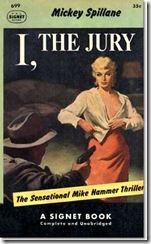
And here’s the cover redone for a later edition:
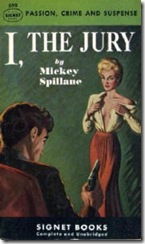
Finally, here’s the poster art for a film version:
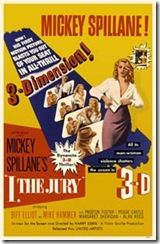
Do you notice a common theme? A man with a gun pointed at a woman undressing. Is he holding the pistol in order to force her to undress? Or is she undressing in order to compel him to drop the pistol? Thousands of readers in the 40’s and 50’s felt compelled to read the book in order to find out what was behind this juxtaposition of sex and violence, drawn by the imp of the perverse.

